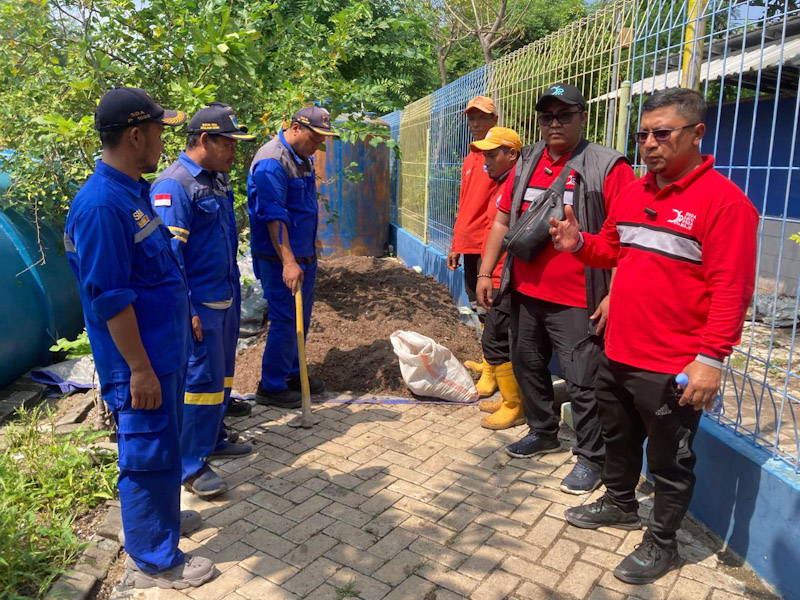

Thursday, June 12th 2025 Reporter: Anita Karyati Translator: Nugroho Adibrata 165

(Foto: Anita Karyati)
The Seribu Islands Water Resources Sub-agency has innovated by utilizing sludge from the Domestic Wastewater Management System in the Northern Zone on Tidung Island, South Seribu Islands, as an eco-friendly planting medium.
We fully support it if it benefits the community
Seribu Islands Water Resources Sub-agency (SDA) Head, Mustajab said, this innovation is part of a change initiative driven by the limitations of mud suction fleet in the archipelagic region.
"Until now, the wastewater sludge on land has been managed by PD PAL Jaya and disposed of at IPLT. However, the suction fleet is not yet available on the island, so we are looking for alternative ways to avoid waste pollution," he expressed, Thursday (6/12).
To develop the innovation, he collaborated with the Jakarta Environment Agency in utilizing organic waste to produce compost (fertilizer).
In the process, sludge from the wastewater treatment plant, including sediment from the regularly cleaned manholes, is collected in bags and placed in a sludge drying bed to destroy the bacteria within it. After drying, the sludge is mixed with compost from organic waste.
"This trial has been conducted for two weeks on water spinach plants, and the results are good and fertile. It is much more efficient," he explained.
He added, this innovation has also been directly socialized to the residents of Tidung Island, thus they can make use of the mud. Hopefully, this could maintain food security in Seribu Islands.
"This innovation will continue on Tidung Island and also on other islands. Hopefully, the use of waste as planting media will spread among the community, thus more people will engage in urban farming," he hoped.
Such innovation received appreciation from South Seribu Islands Council Member, Munawar. Because this could serve as an example of community-based waste management.
"We fully support it if it benefits the community, especially for gardening support. This collaboration between the Environment Agency and KPKP Sub-agency is very good," he added.
Besides helping provide quality planting media, this program was also expected to reduce environmental pollution caused by the accumulation of sludge and organic waste.
"This innovation can also enhance community participation in maintaining environmental cleanliness sustainably," he stated.